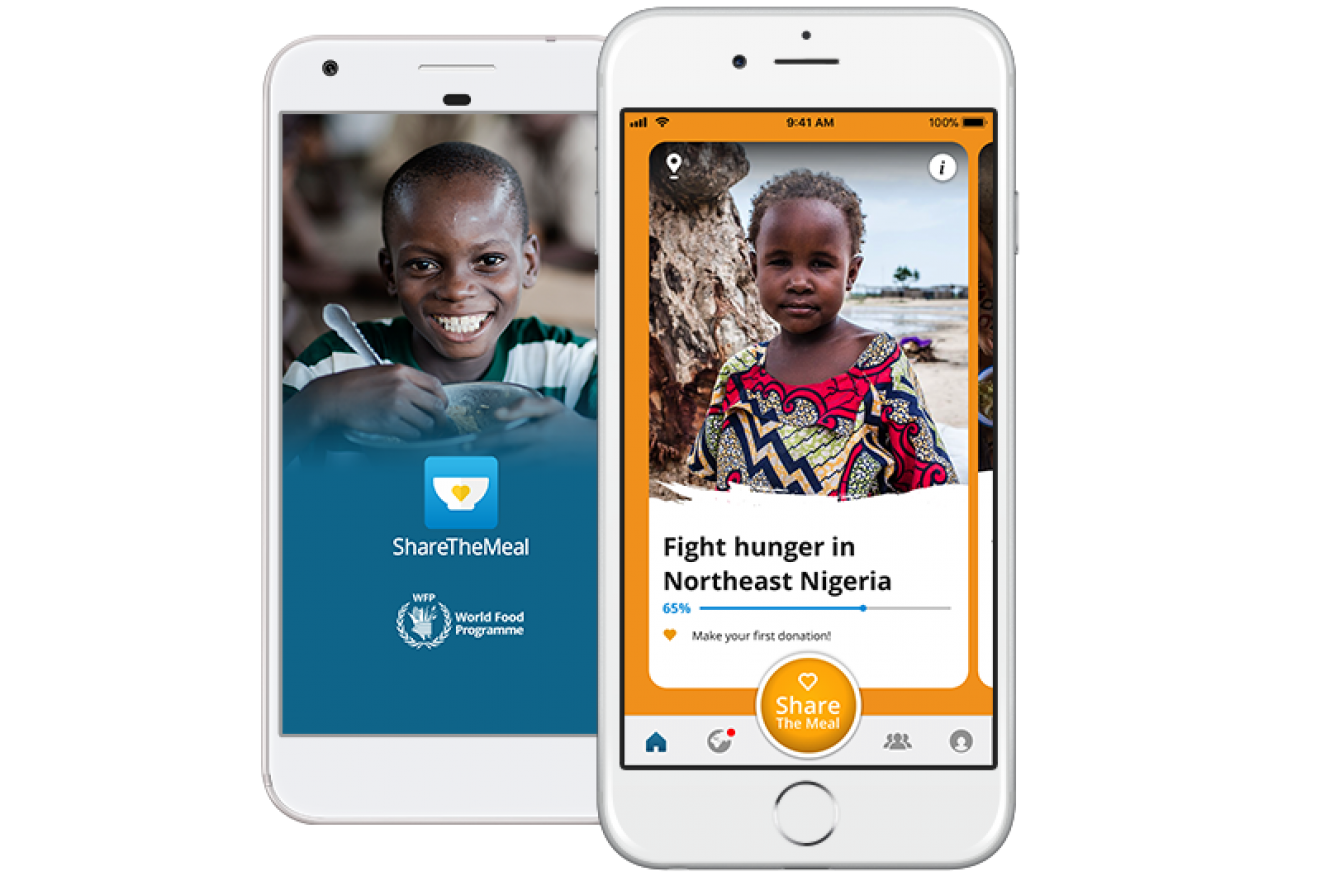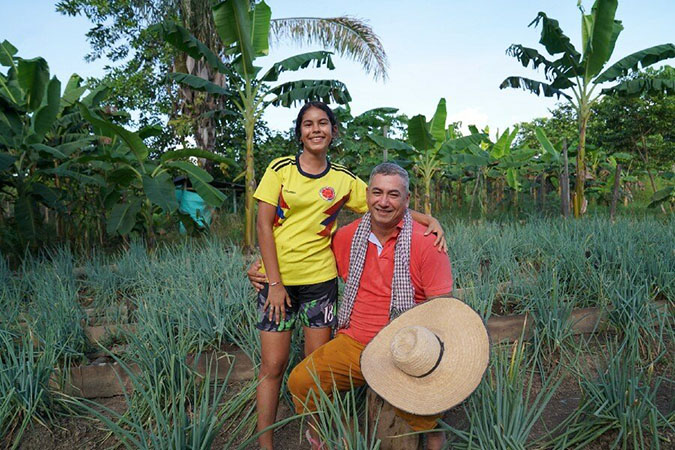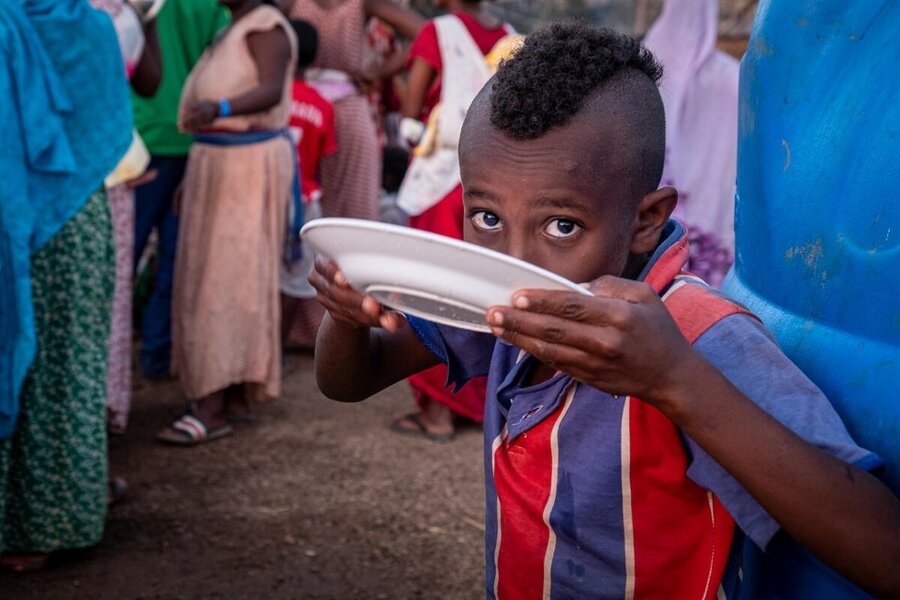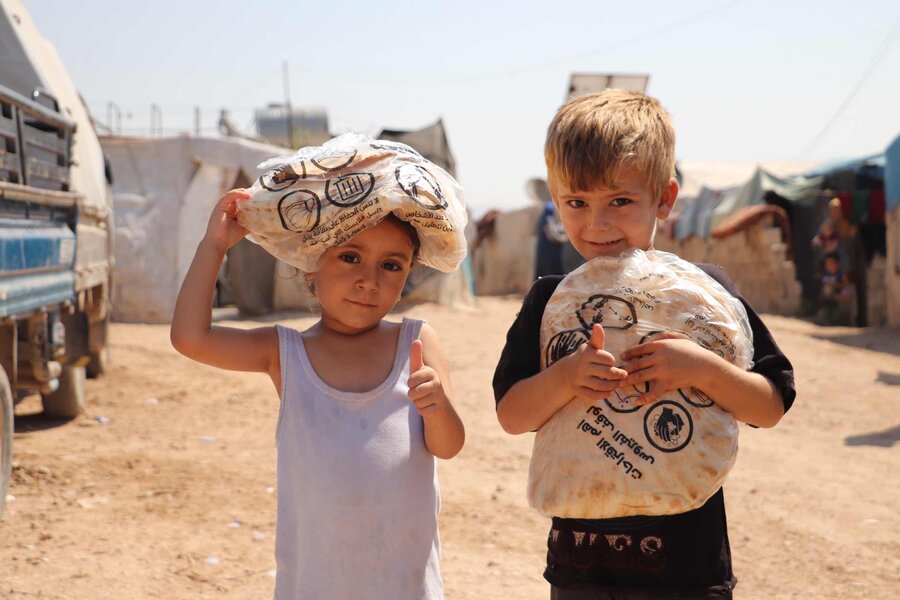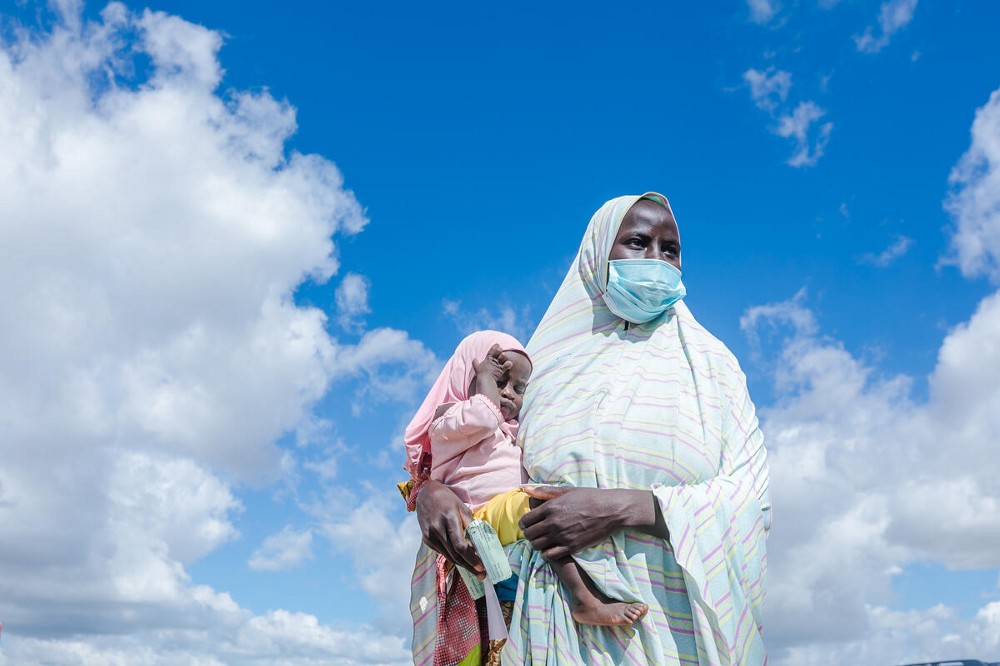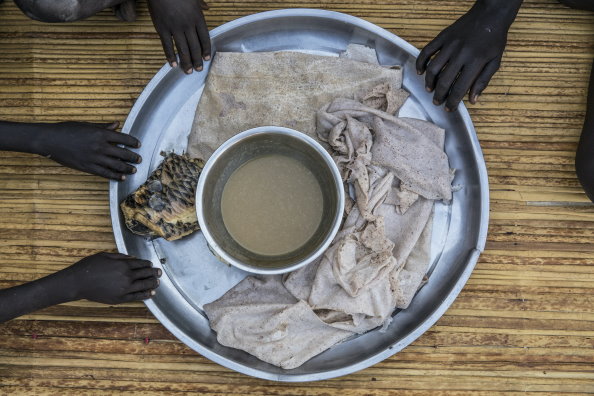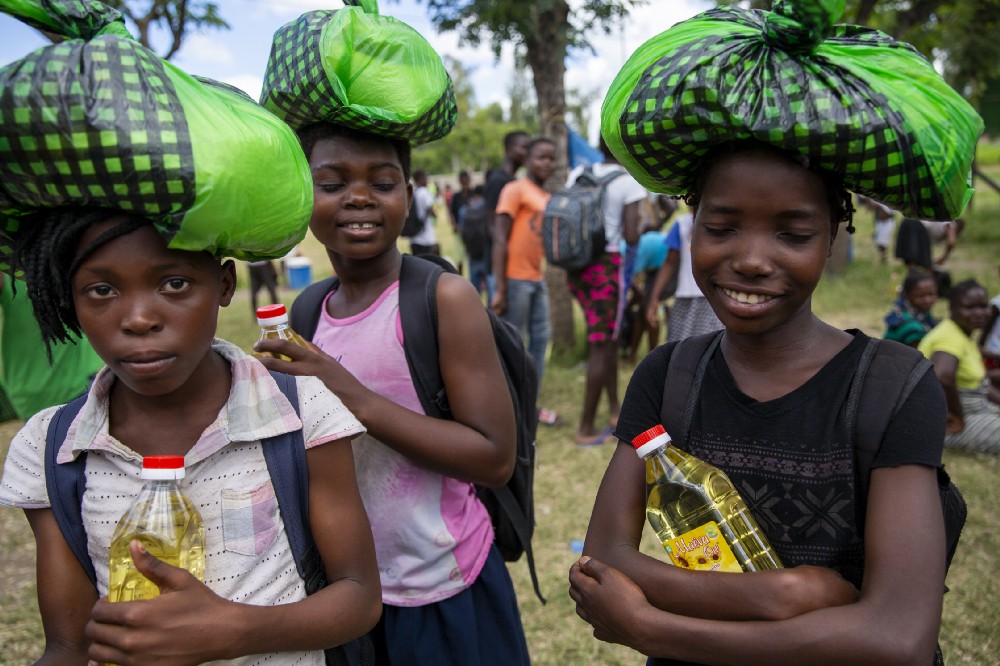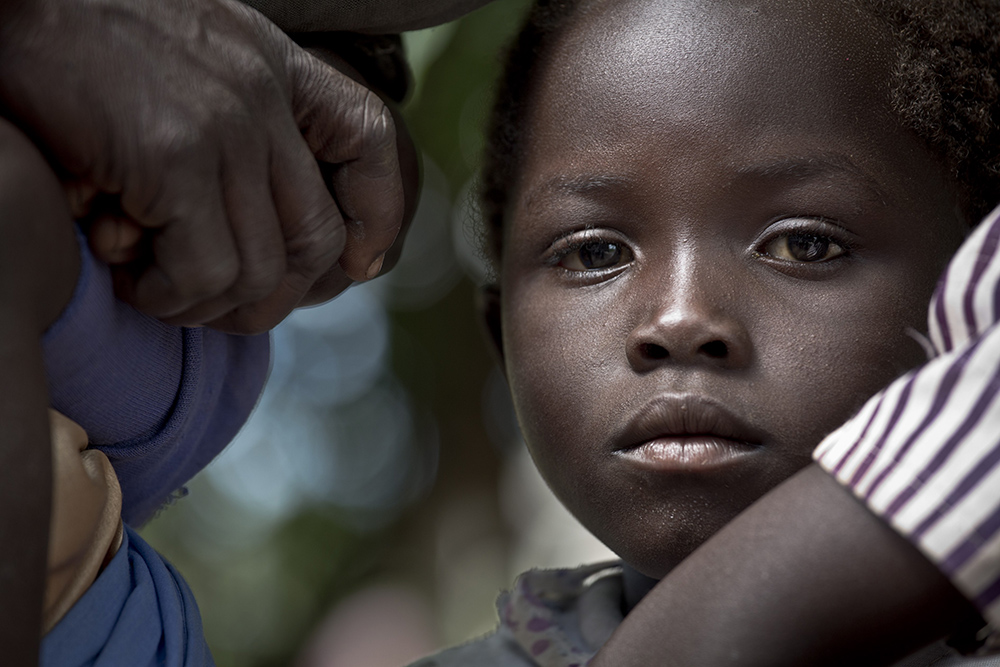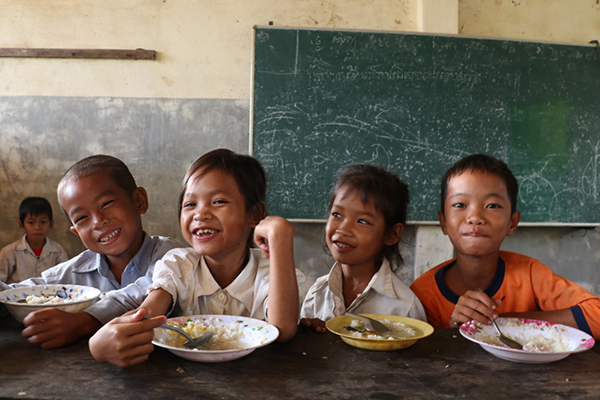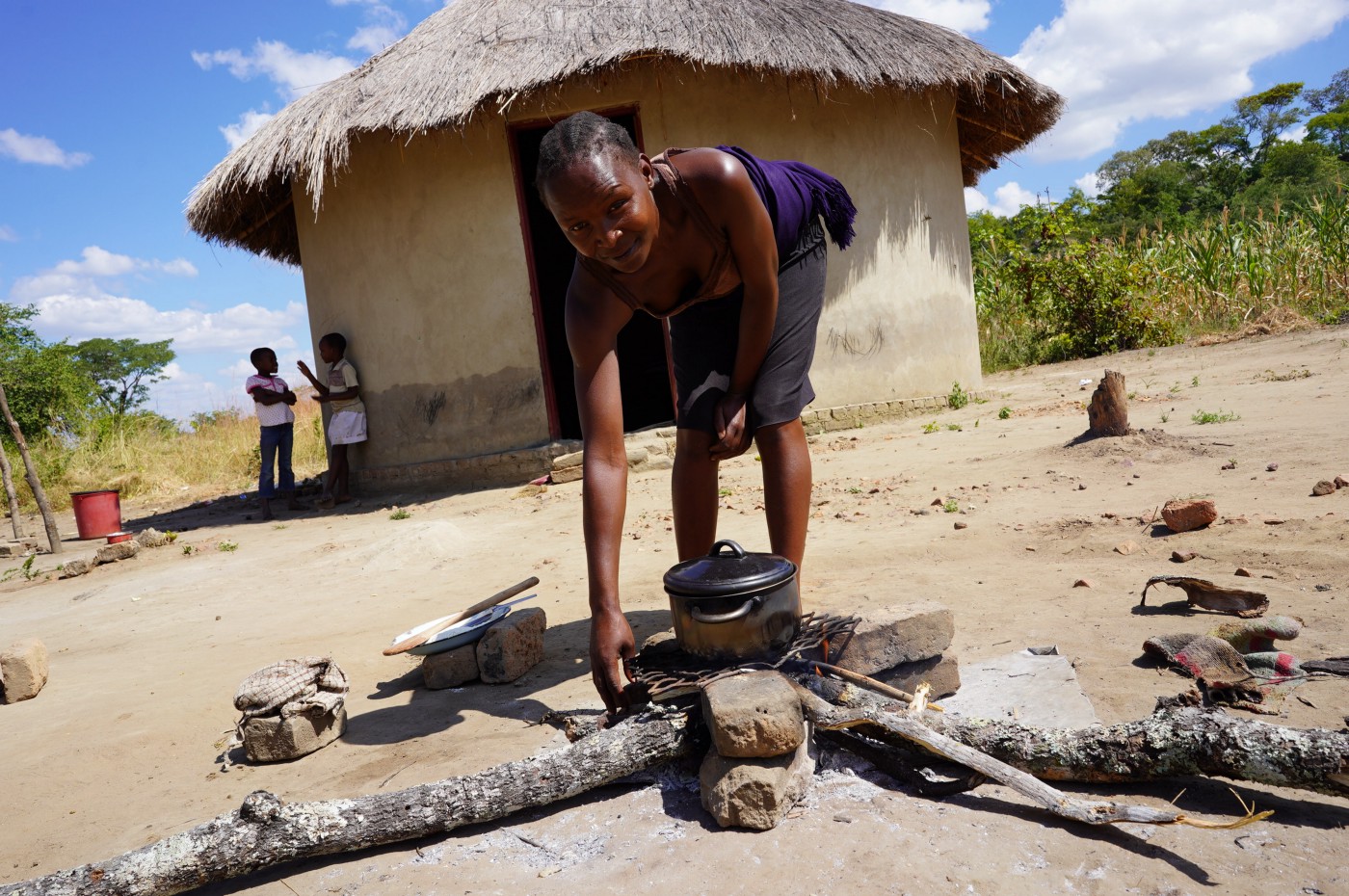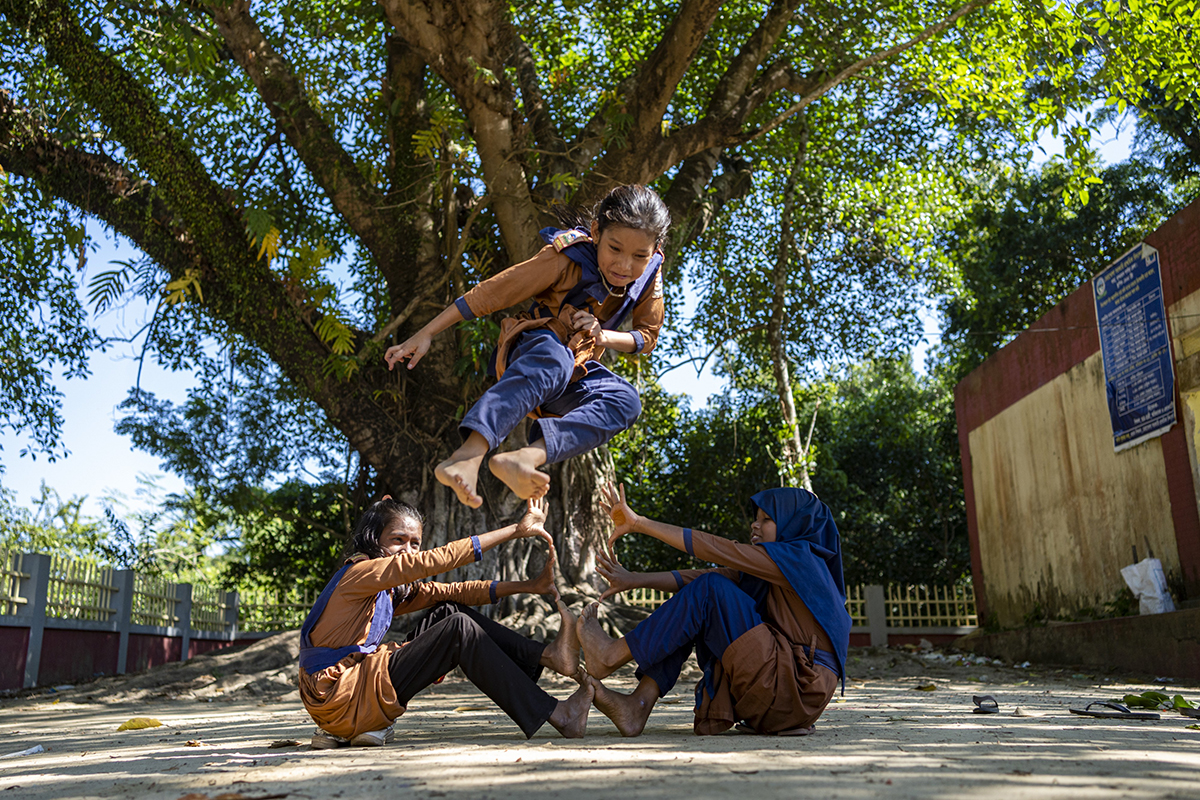WFP’s fundraising app, ShareTheMeal, was recognized by both Google and Apple as one of the best apps of 2020.
Food Aid
The Training and Reincorporation Centre may sound forbidding but it’s a place where former combatants in Colombia’s conflicts can learn poultry and fish farming with the support of the World Food Programme (WFP). Edgar, a FARC ex-combatant, is one of 187 former combatants and their families who take part in agricultural projects as part of a process to bring them all back into mainstream society. The aim is to train people to diversify both the production and consumption of food; while providing access to local markets.
WFP responds as refugees from Ethiopia seek sanctuary in Sudan
After more than nine years of conflict, life in Syria has never been harder. Food prices are soaring and the life families hoped they would rebuild is further away than ever. In the past year alone, the price of basic foods has increased by a staggering 247 percent. Putting a basic meal on the table has never been so difficult during this crisis, which kicked off in 2011. Each month WFP provides life-saving food to 4.8 million Syrians.
Coronavirus could push migrant workers and their families into hunger, UN agencies warn
WFP’s Cost of a Plate of Food 2020 report highlights the countries where a simple meal such as rice and beans costs the most, when compared with people’s incomes.
The UN World Food Programme (WFP), which provides lifesaving food assistance to millions across the world – often in extremely dangerous and hard-to-access conditions – has been awarded the 2020 Nobel Peace Prize. The agency was recognized “for its efforts to combat hunger, for its contribution
12 things you didn’t know about the World Food Programme
‘Coronavirus destroys everything’: Urban hunger grips Zimbabwe
The United Nations World Food Programme (WFP) has announced a massive rise in the number of hungry people it plans to assist around the world, as the devastating socio-economic impacts of the COVID-19 pandemic push millions more people into food insecurity in low- and middle-income countries. “The frontline in the battle against the coronavirus is shifting from the rich world to the poor world,” said David Beasley, WFP’s Executive Director. “Until the day we have a medical vaccine, food is the best vaccine against chaos. Without it, we could see increased social unrest and protests, a rise in migration, deepening conflict and widespread under-nutrition among populations that were previously immune from hunger.”
As the COVID-19 crisis pushes up levels of hunger among the global poor, WFP and UNICEF are urging national governments to prevent devastating nutrition and health consequences for the 370 million children missing out on school meals amid school closures. The agencies are working with governments to support children who are out of school during the crisis. In 68 countries, governments and WFP are providing children with take-home rations and other alternatives to school meals.
School Meals puts a spring in the step of women and girls in Bangladesh

